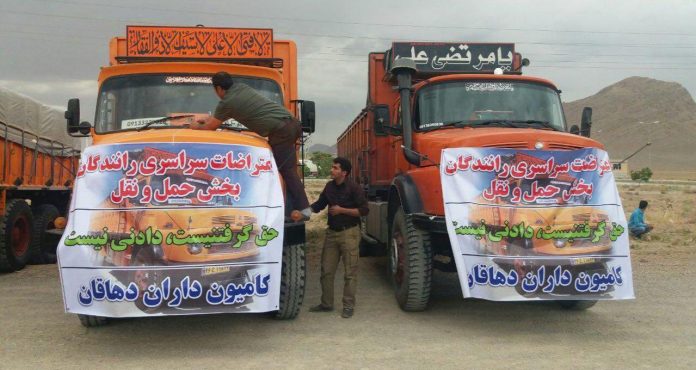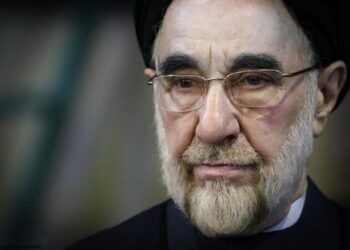October 05, 2018

Iranian truck drivers have begun yet another strike three months after an earlier strike, which resulted in promised changes that the truckers say have not materialized.
The truckers say they are protesting wage levels that they see as unfairly low, but also rising costs for parts and supplies such as tires.
The Voice of America Persian Service said it had received three videos showing striking drivers in Qazvin, Ahvaz and Esfahan province since September 24.
The sharp depreciation of the rial has contributed to the rising prices for parts and supplies.
In a report published September 26, the Mehr news agency quoted some truck drivers as saying the price for a particular type of tire should be about $450, based on the official Iranian exchange rate of 42,000 rials to the dollar. But the drivers said dealers have been charging them as much as $1,300 each for such tires.
The strikers are also demanding that the tariff on imported tires be cut from 30 percent to 5 percent.
The drivers said they ended their earlier strike when about half their demands, including the ones on tires, were met. But they say nothing has happened in reality.
Similar grievances about rising costs and stagnant wages prompted Iranian truckers to launch a strike May 22 in several parts of the country. The strike eventually became nationwide.
The strike, which lasted several weeks, won statements of support from the London-based International Transport Workers’ Federation (ITF), which represents 19 million workers in 140 countries, and from the International Brotherhood of Teamsters, which represents American and Canadian transportation and supply chain workers.
The participation of gasoline tanker drivers in the earlier strike caused shortages at Iranian gas stations in some Iranian cities.
Judiciary spokesman Gholam-Hossain Mohseni-Ejai was asked September 30 about the new truckers’ strike and lashed out. The Tasnim news agency quoted him as promising “harsh punishment” for anyone who forced truckers to join the strike and anyone who in any way disrupts transportation.
Iran has seen frequent nationwide protests this year, involving Iranians angered by local and national officials and business leaders whom they accuse of mismanagement, corruption and oppression.














